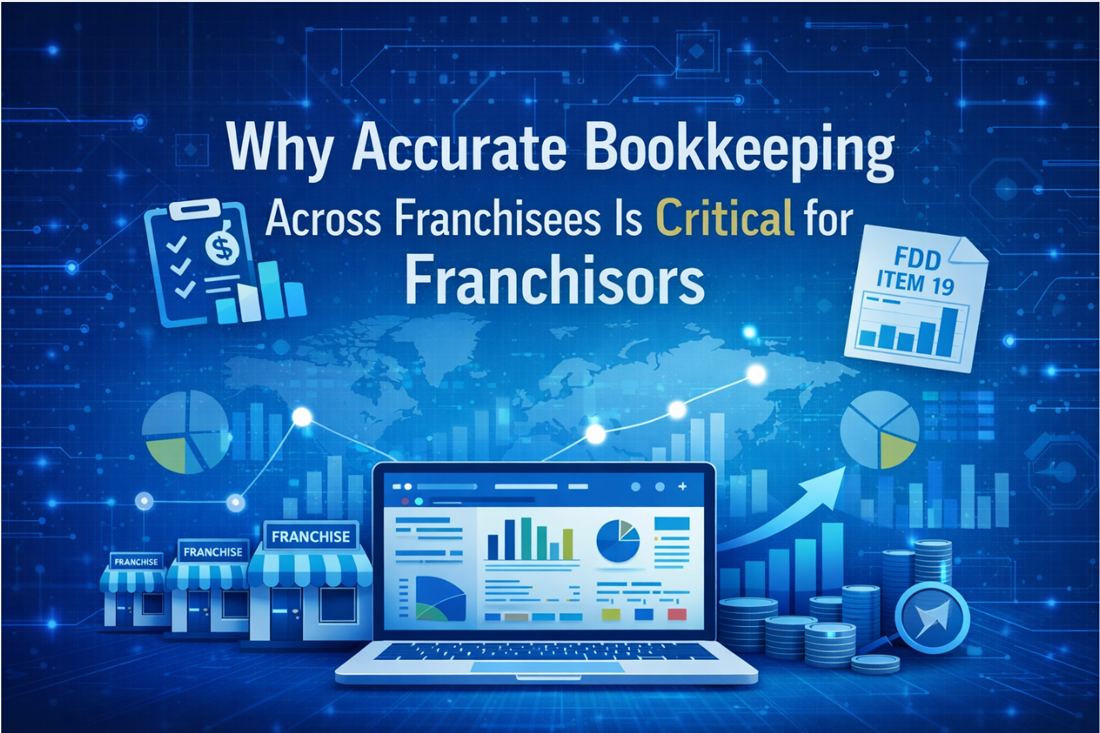
Running an eCommerce business can sometimes feel like a juggling routine. You’ll have to stay on top of your transactions, inventory, administrative fees, and more. Chances are that your accounting and bookkeeping needs are low on your list of priorities, but that can come back to bite you.
Managing your own books may seem like a cost-saving strategy, but many online merchants lack the time or expertise to stay up-to-date and in compliance. Your eCommerce business requires the attention of an eCommerce accountant.
Today, we’ll show you how partnering with an accountant that specializes in eCommerce can help your business to thrive.
Types of Accounting for Your eCommerce Business
One of the first financial decisions you’ll need to make is the accounting method you’ll use for your online business. There are two types of accounting practices to choose from: cash basis and the accrual method.
Determining which method is best for your company depends on several factors, which we’ll explore below.
Cash Basis Accounting
Cash basis accounting is the simpler of the two methods. In this method, you add an accounting entry every time money enters or leaves your bank account. Basically, you’ll be keeping a record of all your transactions, and this record will largely mirror your sales records and bank accounts.
The simplicity of this system is its greatest appeal, since it doesn’t require a lot of accounting knowledge or expertise. It’s actually a great eCommerce accounting strategy for startup businesses.
You might consider this method if you:
- Run a small eCommerce business
- Run an Amazon FBA store
- Produce products on demand
If your eCommerce store starts to grow, you can always switch to the accrual method down the line, though you may need to consult with an eCommerce accountant to help you with your books.
Accrual Method
In accrual accounting, you record your income and expenses as the transactions take place, regardless of when the money reaches or leaves your bank account. This may sound confusing, but it actually presents a more accurate picture of your company’s cash flow.
The accrual method can also help you make financial projections and better manage your inventory, since you’ll have a regular snapshot of your business activity. That is why the accrual method is generally recommended for larger or growing businesses. It can be particularly helpful when you’re juggling the various moving parts and pieces of running an online business.
The biggest drawback is that the accrual method requires a bit more attention to reconcile income and expenses, which is why you will benefit from the attention of an eCommerce accountant.
Which of these methods is right for your business? A professional accountant, who can provide guidance about the right accounting method to use for every phase of your business.
eCommerce Accounting Best Practices to Remember
Online merchants face some unique business challenges. Here are five of the best practices to use when you’re using accounting for Amazon stores and other online businesses.
Maintain a Budget
A budget is the summary of all of the income and expenses associated with your business. Keeping track of this data is a challenge for any business owner, but eCommerce bookkeeping demands that you keep track of such expenses as:
- Administrative fees
- Warehousing fees
- Shrinkage (inventory lost or damaged)
- Returns and chargebacks
Staying up-to-date with your books is crucial to understanding the financial health of your business. An eCommerce accountant can help you stay current, while also providing reports to optimize your cash flow and help you grow.
Distinguish Between Returns and Chargebacks
Many online retailers fail to distinguish between returns and chargebacks. The difference is actually quite simple:
- Returns: A customer may return merchandise for store credit or a full refund
- Chargebacks: A customer disputes a charge, claiming it was fraudulent
If you give a customer store credit, the original transaction should be listed as an expense and added to your accounts payable list.
Both refunds and chargebacks should be recorded under “Returns and Allowances.” Chargebacks may include an additional fee, which can be categorized as a business expense.
Categorize Your Transactions
Categorizing your transactions can help you estimate your monthly revenues, day-to-day expenses, and any one-off transactions, which is why it’s a common practice in bookkeeping for eCommerce businesses.
Your transactions will generally fall into one of the following categories:
- Sales
- Returns
- Chargebacks
- Administrative fees
- Salary
- Marketing
You may have additional categories, depending on the type of business you operate. The point is that by placing transactions in these specific categories, you’ll be in a better position to do financial forecasting and hone in your business strategy moving forward.
This can also be an important step in managing your inventory, as your sales figures can be used to project future demand and show you the best times to order new supplies to keep up with seasonal trends.
Stay Current with All Taxes
Retailers often have to deal with two different types of taxes: business taxes and sales tax. Sales tax can be particularly important for eCommerce businesses, since you’ll have to deal with unique circumstances when you operate in one state but sell to customers in another state—or even another country.
Every state has its own regulations when it comes to filing sales taxes. An eCommerce accountant can help you sort through these details to help you stay up-to-date and in full compliance with all tax regulations.
Your business taxes will be paid on your annual tax return, though businesses that anticipate paying over $1,000 in taxes are encouraged to make quarterly estimated payments.
Again, an eCommerce accountant can help you with tax planning and preparation, so you can ensure you’re prepared for tax season.
Streamline Your Processes with Accounting Software
The right accounting software can make a world of difference for online retailers. Many business processes can be automated to save you time. The advanced analytical and reporting features of this software can help with financial forecasting and long-range planning, too.
Of course, the best way to have access to the latest software is to partner with an online accounting firm. Modern cloud-based software can provide real-time data on your business, which means that the online bookkeeping features provided by these firms can be accessed anytime, anywhere.
Finding the Right eCommerce Accountant
How do you find the right eCommerce accountant for your business? Here are three things you should consider:
Experience in Your Industry
The right accountant should be familiar with the unique needs of an eCommerce business, but the best accountant will also be familiar with your niche industry.
For example, if your company sells books, you may have unique accounting needs when compared to someone that sells office supplies.
Partnering with the right accountant can ensure that your current needs are met. They may also bring advice and expertise from other companies of your size and industry, helping you streamline or even scale your business.
Clear Communication Channels
Every business owner needs to stay on top of their cash flow. That’s why you want to choose an accountant that provides clear communication, so you’re never out of touch with the financial health of your eCommerce business.
At xendoo, for example, our online accounting team adjusts to your preferred communication method. Your business data is never more than a call, text, or email away, helping you stay on top of every aspect of your business.
The best eCommerce accounting solutions will also provide you with financial reports, such as:
- Profit/loss statements
- Cash flow statements
- Cash flow forecast
These reports are crucial to understanding the viability and health of your business. They can also help you better plan for the future. Additionally, if you ever need a small business loan (e.g., to use to increase your inventory), these financial reports can demonstrate the legitimacy of your business to lenders.
Flexible Pricing
Any retail business will have needs that fluctuate with the seasons, and your needs may grow as your business continues to evolve. The services of an in-house accountant cost around $40 per hour or more, depending on the accountant’s skill level and your exact needs.
This is why many small business owners are turning toward outsourced accounting firms that can perform online accounting for eCommerce for a fraction of the cost of a regular employee.
Best of all, when your company’s financial needs are handled by a professional team, you can get back to focusing on your core business processes instead of getting sidelined by administrative details.
Flexible pricing means that you can scale your accounting needs as your business expands. Your accounting team should grow with you, helping you reach your full potential while staying up-to-date with your financial records and tax planning.
Get Your Head Back in the Game
If running your eCommerce business is starting to feel like running a circus, it’s time to contact a professional. xendoo can help you handle your accounting and bookkeeping needs, so you can get your head back in the game and focus on handling your business.
See for yourself by signing up for our no-obligation free trial. You’ll wonder what you ever did without us!








